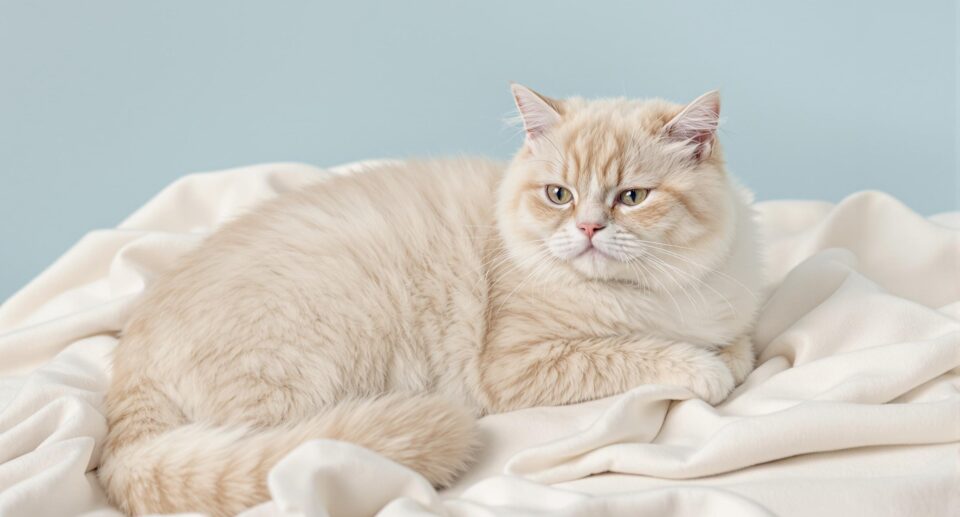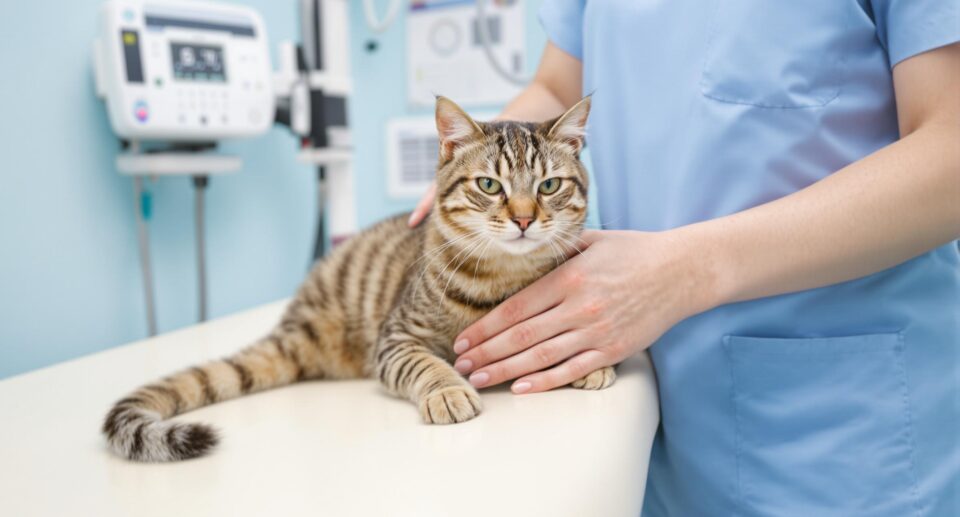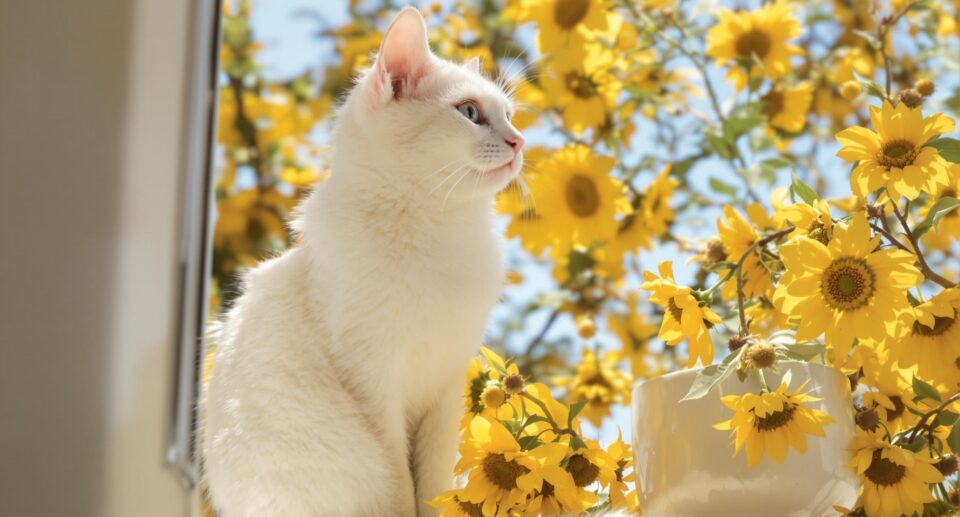
When cats start to put on excess weight, it can take their pet parents by surprise. They’re with us every day, so it can be hard to notice gradual changes in their body condition. Your cat might suddenly look overweight when they’re sitting at their window perch. In the next minute, the very same cat might appear lean as they reach for a toy. So, how can you tell for sure if your cat is overweight or obese?
Healthy Body Condition In Cats
Body condition in cats can be especially difficult to determine because of your cat’s primordial pouch. The primordial pouch is a loose flap of skin that hangs from the cat’s belly area close to their hind legs. This flap of skin once served the evolutionary purpose of protecting the cat’s internal organs in the event of a fight, and could also store extra fat for energy in lean times.
These days, cats tend to develop their primordial pouch at around six months of age. It’s normal and healthy, and it is not a sign that your cat is overweight. Some kitties have a more prominent pouch than others, but it is not necessarily indicative of their body condition.
To determine if your cat has a “pouch” or a “pooch,” pay close attention to how their belly hangs. The belly of an overweight cat tends to be rounder and won’t swing as much when they walk, while a particularly endowed primordial pouch hangs further back near the hind legs. An overweight cat will have extra padding on other areas besides their belly, including around their neck, over their ribs, and above their tail.
How To Tell If Your Cat Is Overweight Or Obese
Still not sure if your cat is overweight? Stand over your cat to get a bird’s eye view. A cat with an ideal body condition will have an hourglass shape with a defined waist that tapers inwards below their ribcage, while an overweight cat will have a more uniform thickness, like a sausage. An obese cat will typically have a belly that sticks out from the sides.
If your cat is fluffy, you can gauge their body condition by running your hands over their sides and back. If they’re at a healthy weight, you’ll usually be able to feel their ribs and spine through a slight covering of fur, skin, and fat. If your cat has excess weight, you may not be able to feel their ribs unless you palpate through a thick layer of fat.
Is My Kitten Overweight?
Kittens need extra calories to help them grow, but it’s still possible for them to become overweight, even though it’s not as common as it is in older cats. It’s normal for your kitten to have a slight potbelly after a large meal, though a protruding belly can indicate a worm infection.
See your veterinarian as soon as possible if you’re unsure if your kitten is at a healthy weight for their stage of development, or if you otherwise have concerns about their growth.
Why Do Cats Become Overweight?
At around 10 months of age, your cat’s growth will slow down and they will be close to their adult height. Their metabolism starts to slow down, and they no longer need the extra calories in kitten food to support their growth. Keeping your nearly adult cat on kitten food for too long is one reason cats become overweight.
Pets do tend to be more prone to gaining weight after they’re spayed or neutered. A desexed cat no longer produces sex hormones (estrogen in females, androgens in males,) causing their energy needs to decrease. Your cat’s daily caloric needs will decrease by an average of 20-25% after spay or neuter surgery. You can transition slowly, gradually decreasing their daily portions, or switch to a lower-calorie indoor cat food.
Free feeding is one of the biggest causes of obesity in cats. Transitioning to a set meal schedule can help your cat maintain a healthy weight. Set meals make it easier for you to monitor how much your cat is eating.
If you’re not sure if your cat needs to lose weight, or how much they should be eating per day, talk to your veterinarian. Reducing your cat’s food intake without a targeted plan can lead to an unbalanced diet with nutritional deficiences, so it’s important that you understand your cat’s needs before you make drastic changes.





